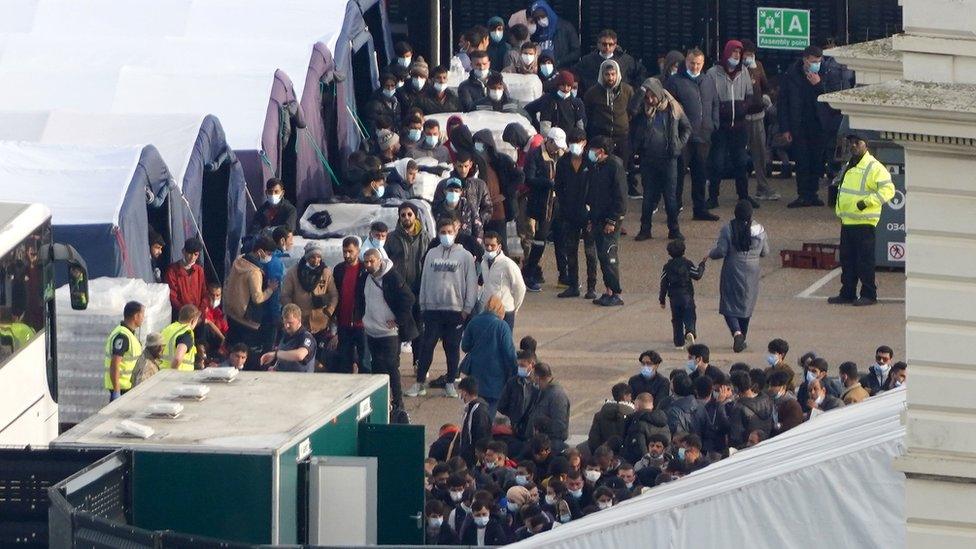Channel crossings: Dozens of Albanian child migrants go missing
- Published
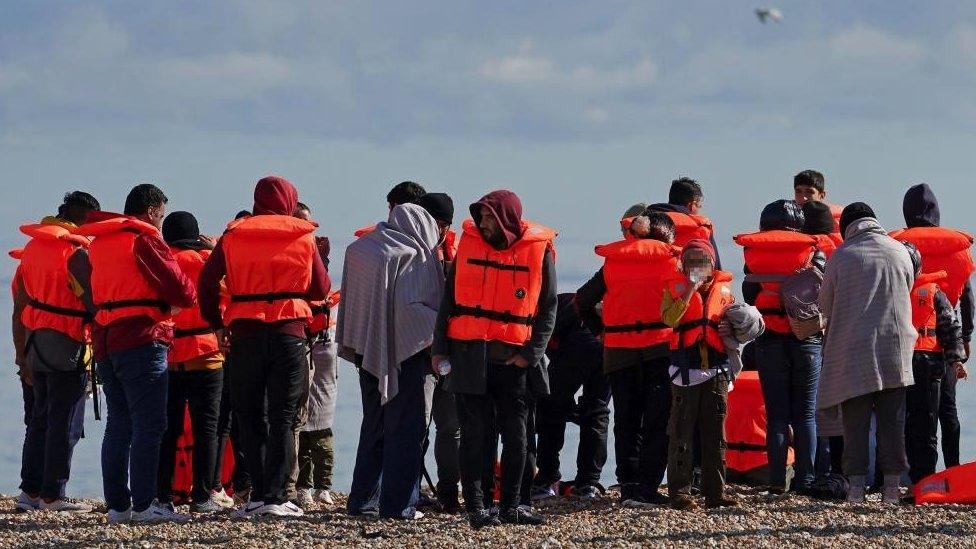
Almost 20% of unaccompanied child migrants from Albania taken in by Kent County Council this year have disappeared, the BBC has found.
The local authority took in 197 Albanian children up to 31 October, 39 of whom have gone missing.
Ecpat UK, which campaigns to protect children from exploitation, said the figures were very concerning.
The council said it had worked closely with the Home Office and police to safeguard vulnerable children.
The figures were obtained by the BBC via a Freedom of Information request.
The council said 197 Albanian children processed at the Home Office's Kent Intake Unit came into its care between 1 January and 31 October.
It added that, as of 7 November, 39 were recorded as missing. However, it said some of those children would have since turned 18.
A government spokesperson said it took the issue of missing children "extremely seriously".
It added that it works "closely with local authorities to ensure vulnerable children are supported".
Government figures collated by the BBC show 44,122 people have crossed on small boats so far this year, compared with 28,461 who arrived in 2021.
This contributed to overcrowding at the Manston processing centre in Kent, which at one point was holding more than double its capacity, at about 4,000 people.
The rising number of diphtheria cases among asylum seekers who have recently arrived in the UK has also been a concern.
Meanwhile, a government plan to send some asylum seekers to Rwanda is currently on hold as it faces a legal challenge.

Analysis: BBC reporter Simon Jones
For a local authority which is taking on the role of a child's guardian, just one young person going missing is one too many.
For Kent County Council, to not know the whereabouts of 39 of the Albanian children it was tasked with caring for must be extremely worrying.
The council says candidly that it can be very difficult to prevent some children from going missing.
It's trying to identify proactively those who might be at risk of exploitation, and, when missing children are found, it will carry out a debrief to see if lessons can be learned.
It has certainly felt under pressure in recent years over the number of asylum-seeking children it has been required to take on, at times refusing to accept any more, saying services were at breaking point.
Now, more unaccompanied children are being dispersed around the country. But the challenge of protecting those children from potential harm remains very real.

More than 12,000 migrants from Albania have reached the UK by boat so far this year - an increase of almost 4,000% compared with 2021.
The issue has been highlighted by Immigration Minister Robert Jenrick, who said that on some small boats 80% of those on board were from Albania.
Laura Durán, head of policy, advocacy and research for Ecpat UK said this was a "really high" number of missing children.
She said: "We're really concerned they are at risk of exploitation or have effectively been trafficked.
"They could be facing labour exploitation in different industries such as construction or car washes; they could be criminally exploited in drug distribution or in cannabis farms, or they could be sexually exploited."
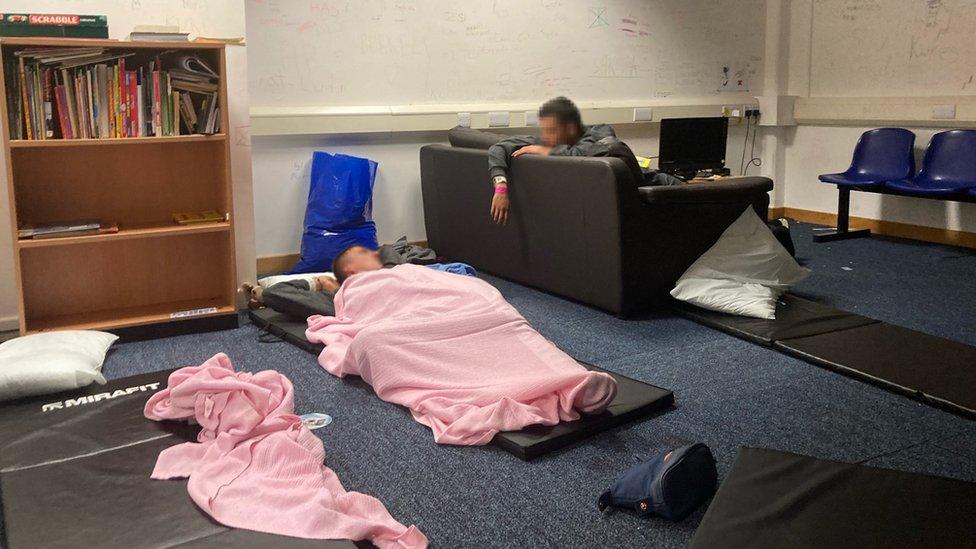
Migrants rest at an unnamed Home Office facility in Kent
In a statement, Kent County Council said it had seen a "significant increase" in the number of unaccompanied Albanian children referred to its services.
It said: "Whilst all unaccompanied asylum-seeking children are vulnerable to exploitation... research and experience evidences that some nationalities are particularly vulnerable and can go missing from local authority care very quickly.
"Kent County Council has used both established safeguarding protocols, including the National Referral Mechanism, external, and initiated multi-agency strategies to minimise the risks for these children as much as possible.
"The council continues to take a proactive role in safeguarding all unaccompanied asylum-seeking children in its care."
Related topics
- Published8 March 2023
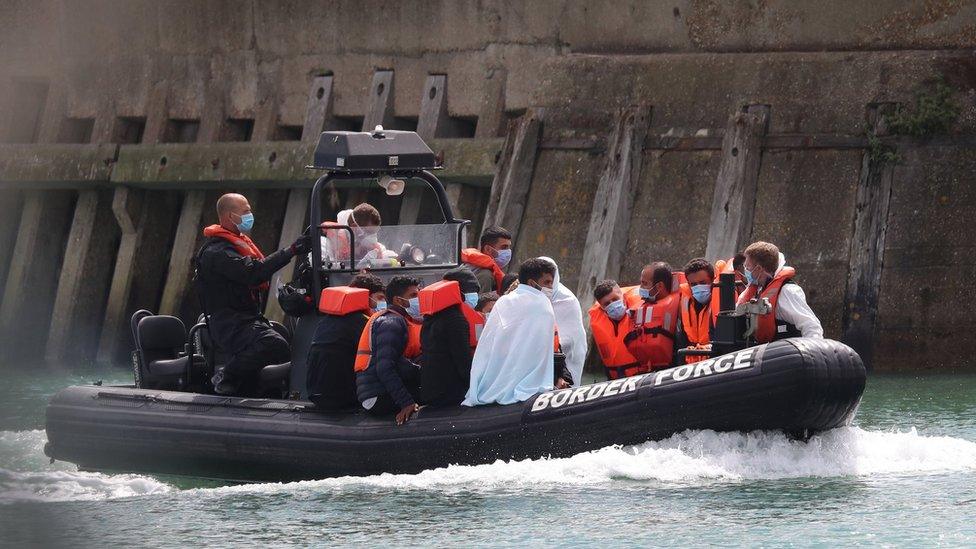
- Published13 December 2023
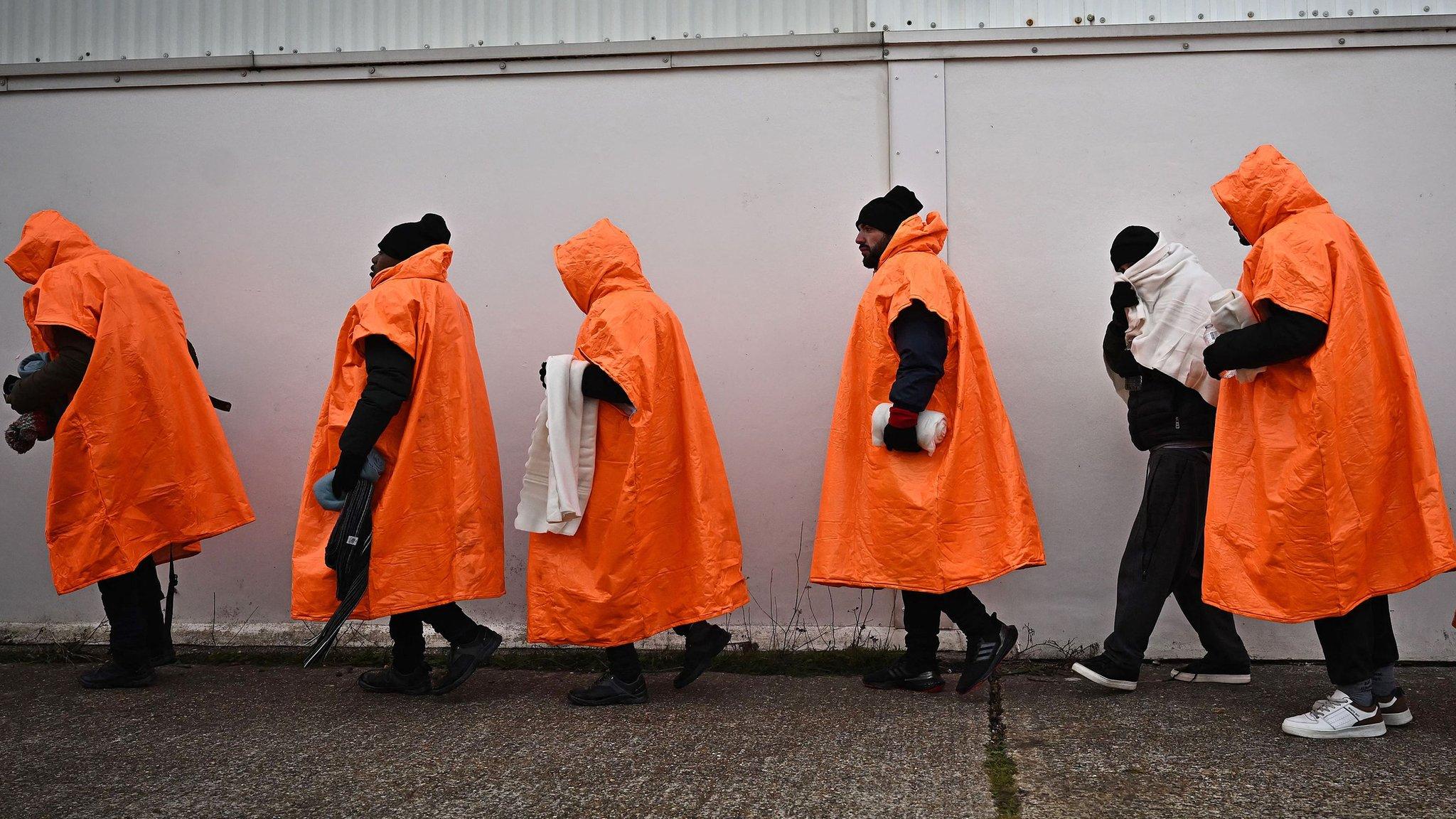
- Published28 November 2022
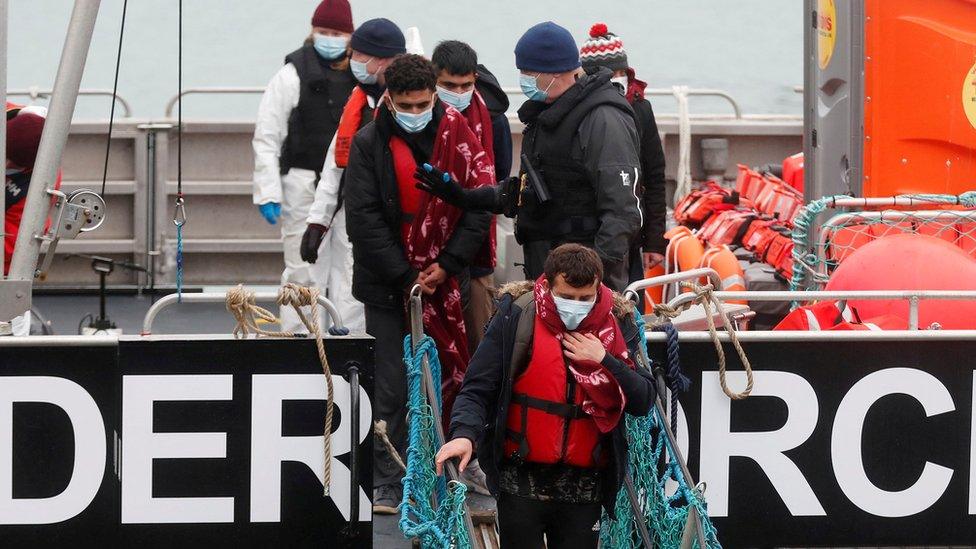
- Published27 November 2022
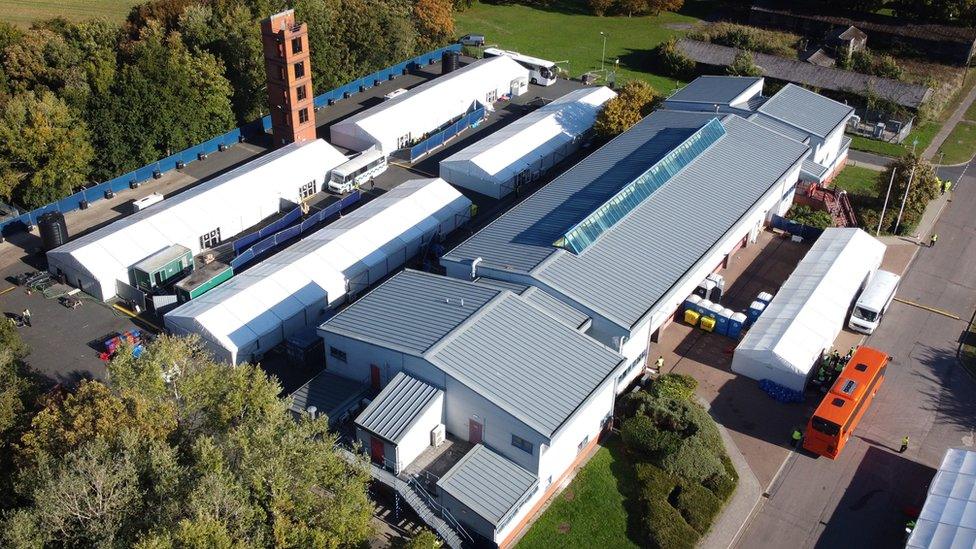
- Published21 December 2022
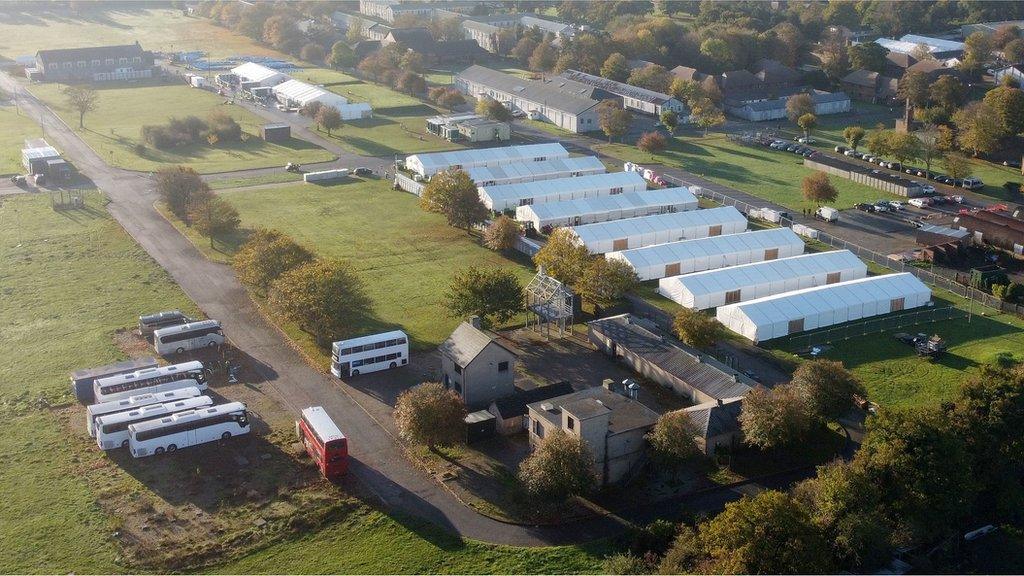
- Published2 November 2022
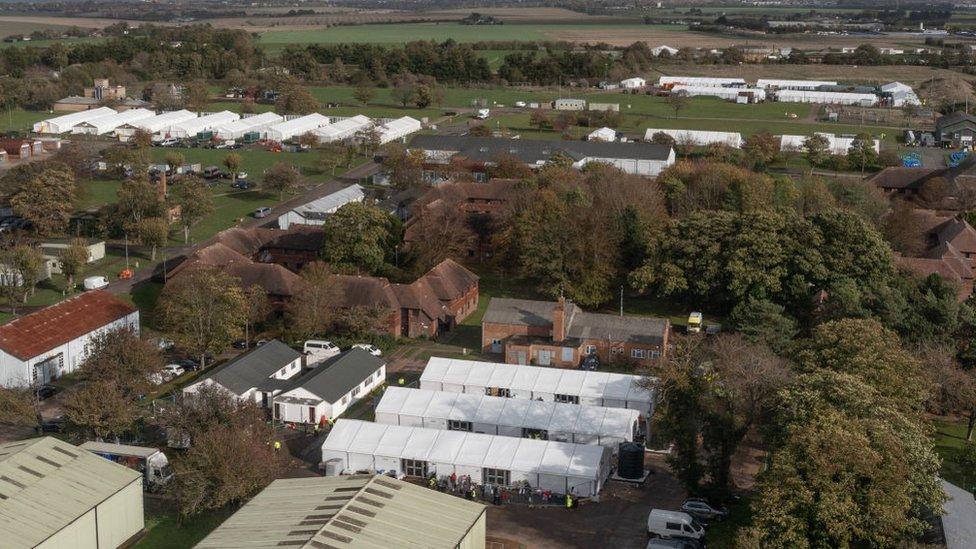
- Published30 October 2022
